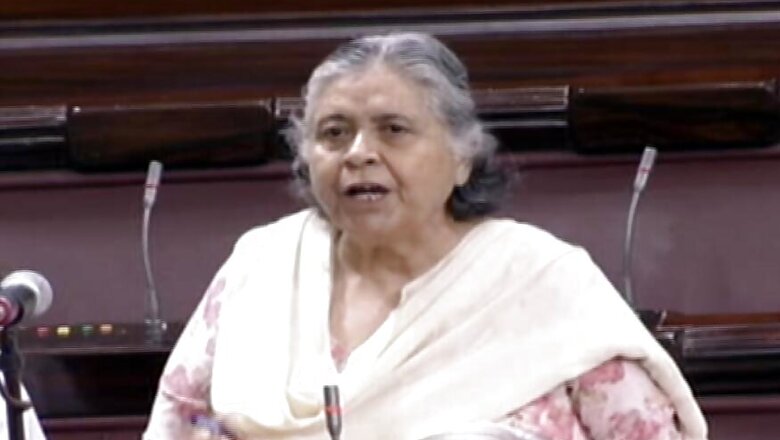
views
For a country that is quick to protest the slightest hint of racism, the paradox of popular fairness creams and the colonial bias that underpins notions of beauty are back to haunt us.
When Congress MP Viplove Thakur on Tuesday demanded a ban on fairness creams saying they give women an inferiority complex, she knew she had stirred a debate that feminists had been throwing their weight behind for long. Her demand assumes significance as the 74-year-old comes from Himachal Pradesh, where an avalanche of pharma firms manufacture skin-lightening products despite cooler climes favouring lighter skin types.
It also fortifies the stand taken by Bollywood's divas who have been comfortable in their dark skins despite the pulls of the entertainment industry.
"Don't add an adjective to make me feel different. I would rather be unfair than dusky" Nandita Das had said in 2013. The award-winning actress was so perturbed that she readily went around town to counsel women who had heart-rending accounts of dark-complexion slur to tell.
TRS MP Kavitha Kalvakuntla has an interesting take. She says,"Fair and lovely sells the most in south India. Fairness is an over-rated concept. The new generation of women particularly from southern parts of India feel we are lovely, we don't have to be fair".
Gender rights activist Ranjana Kumari calls it a colonial hangover. "Obsession with skin colour is a hangover of colonial past because we always thought British rulers were superior. The obsession has been carried to such an extent that dark-skinned girls are pressurised, and go into depression."
The issue of 'fairness' had come up in the budget session too when Congress vice president Rahul Gandhi took a jibe at Prime Minister Narendra Modi on his promise of bringing back black money. Rahul called the PM's drive to clean up black money as a 'Fair and Lovely Yojana', a choice of words which was dubbed as racist by his rivals.
This push for fairness straddles twin streams of oppression and faux liberation. A dark-skinned woman facing alienation is the marketing theory of sellers. The cream promises to lift her to an unnatural level of fairness. It's the manufacturing of a utopia of desires. A women's physicality makes her superior, and with a quirk of fate she may become privileged. The feminine mystique often subsumes into the white skin. Such is the fetish for fair looks that advertisements for brides mentions White and milky white as a requirement for suitable brides.
In 2003, Hindustan Lever limited had to withdraw its infamous air hostess ad, accepting that concerns raised by women groups were justified. The ad showed a father lamenting that his daughter was not earning enough as she was dark-skinned. Soon after she used the fairness cream, the ad went on to show, she got a high-flying job with an airline. It kicked off a debate on economic success, beauty and portrayal of women.
The same year the Indian Government said it was looking into other adverts, and indeed the whole skin-lightening industry, accepting that these ads are irresponsible and portray women in a very poor light.
Even as the debate centres around gender, the seduction of consumers has extended to men as well. The arrival of 'fair and handsome creams' in the market is also a reflection of a cultural obsession with fair men, and not the quintessential tall, dark and handsome. So, men may no longer be using the 'ladkiyon Wali cream' - but surely the discourse on skincare and melanin has come a full circle for those who started it.












Comments
0 comment